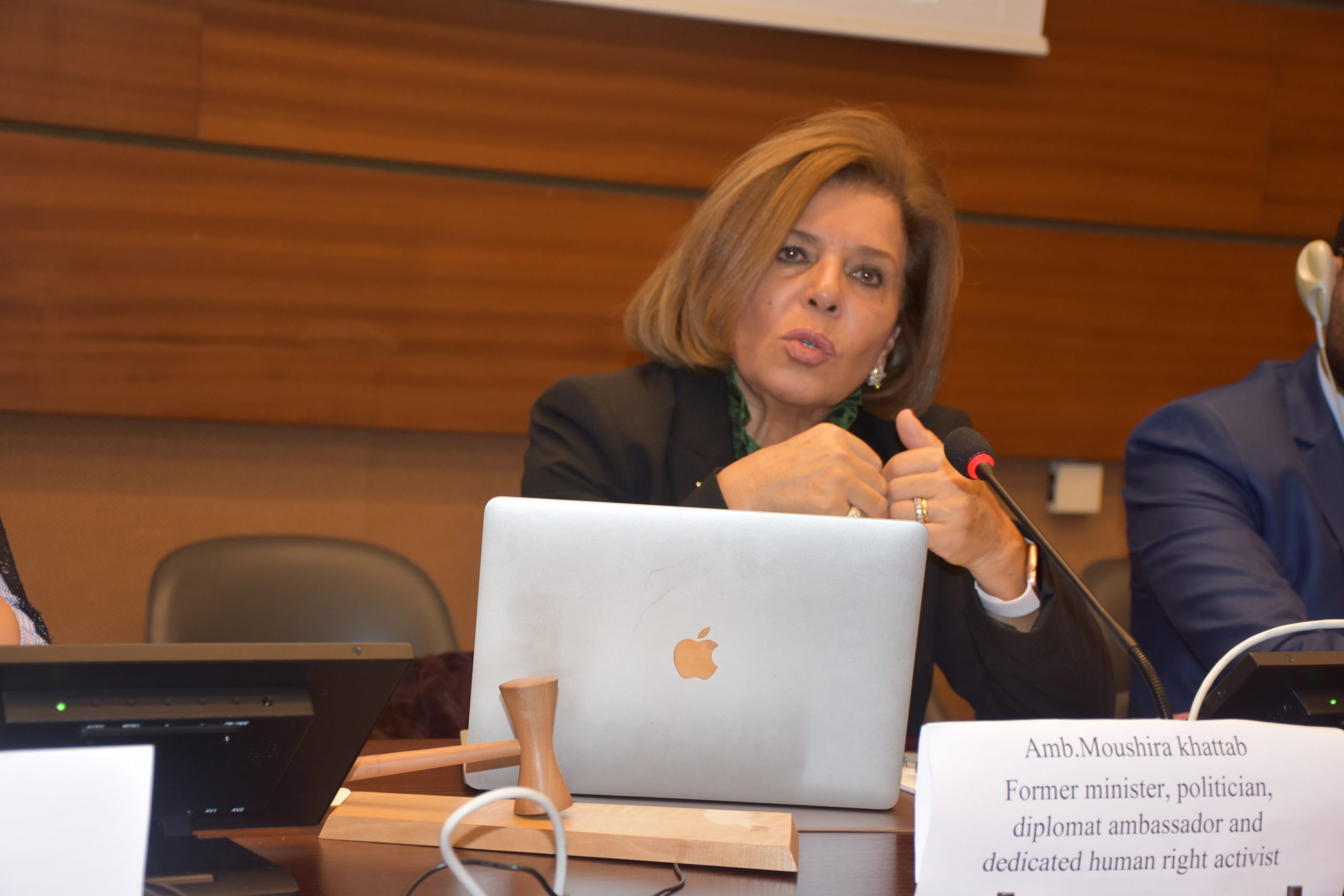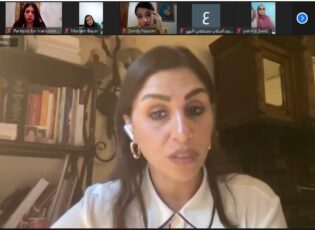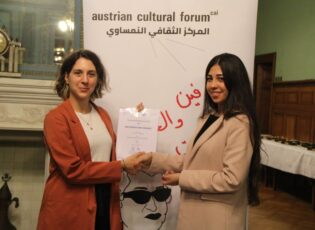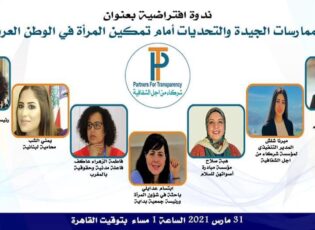With the participation of Ambassador Moushira Khattab, human rights organizations hold a symposium on economic and social rights in Egypt
On November 12, Partners for Transparency, in cooperation with the Maat Foundation for Peace, Development and Human Rights, held a symposium entitled Economic and Social Rights in Egypt, on the sidelines of the 34th session of the Universal Periodic Review, at the United Nations Human Rights Council in Geneva.
Ambassador Mushaira Khattab, former Minister of State for Family and Population, Bakr Sweilem, Executive Director of the Al-Jura Association, Sherif Abdel-Hamid, Director of the Research and Studies Unit at the Maat Foundation, Monica Mina, Executive Director of the International Consulting Group, and Norhan Mustafa, researcher at Maat Foundation, participated in the seminar and was moderated by Samira Abi, member of the International Alliance. For peace and development in Geneva.
During the symposium, Moushira Khattab confirmed that the Egyptian government has worked over the past years to advance the right to education and health by taking a set of positive measures and initiatives, whether at the legislative level or actual practice, and Khattab praised the 100 million health initiative launched by President Abdel Fattah El-Sisi to eliminate Virus C And non-communicable diseases, as well as early detection of diabetes, high blood pressure and obesity, which target 50 million citizens in all governorates.
While Bakr Sweilam indicated that the current government announced 11 thousand projects with a financing amounting to 2 trillion pounds, most notably the new Suez Canal project and the Administrative Capital, in addition to 13 other cities, and Suwailem stressed that Sinai is of special importance to the Egyptian national security. The government has great interest in the development of Sinai, which made it pump 5.23 billion pounds in investments to develop Sinai.
Sherif Abdel Hamid explained that the government received 19 recommendations during the previous review of Egypt related to economic and social rights and accepted them all, but with regard to the economic reform program, although the government has been able to achieve a number of program goals, on top of which is increasing the rate of economic growth, reducing the state budget deficit and recovering the tourism sector. On the other hand, it caused the erosion of the middle class, due to the increase in taxes, the lifting of subsidies, the increase in customs, and the increase in the prices of government and private transport services.
Monica Mina said that the government has worked in recent years to develop the educational system by focusing on developing curricula and teaching method, adopting new curricula and innovative teaching methods in order to abolish the philosophy of preservation and indoctrination, to create an innovative, thinker and ambitious youth.
Nourhan Mustafa added that the government aims to build a system of positive cultural values in Egyptian society that respects diversity, difference and non-discrimination, and is also working to enable the Egyptian citizen to gain access to knowledge and open horizons for him to interact with the data of his contemporary worker, and to realize his history and Egyptian cultural heritage.

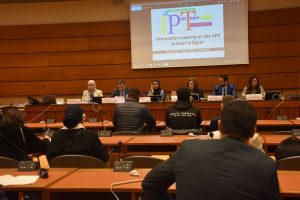
Short link: https://pfort.org/en/?p=3974

